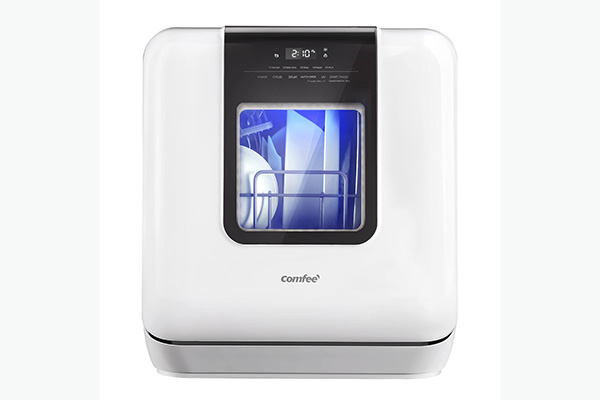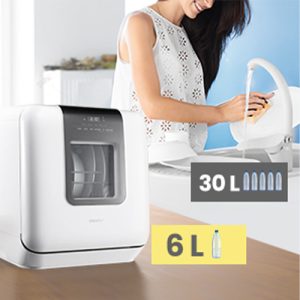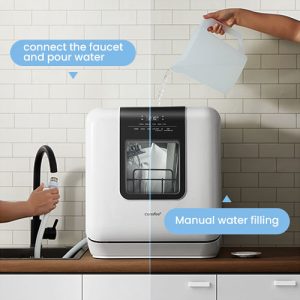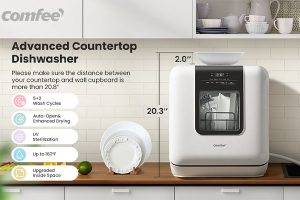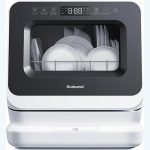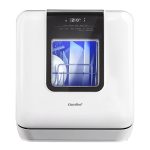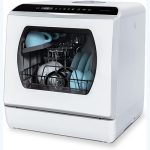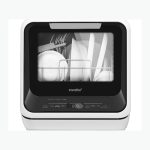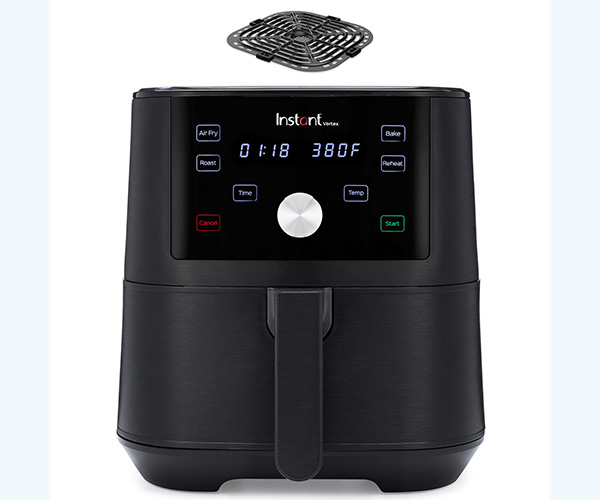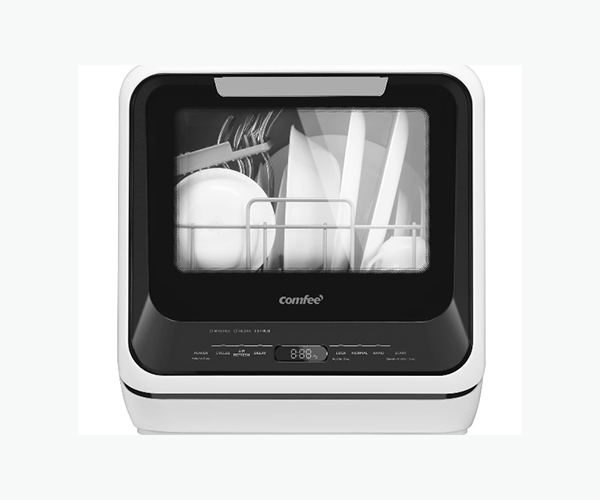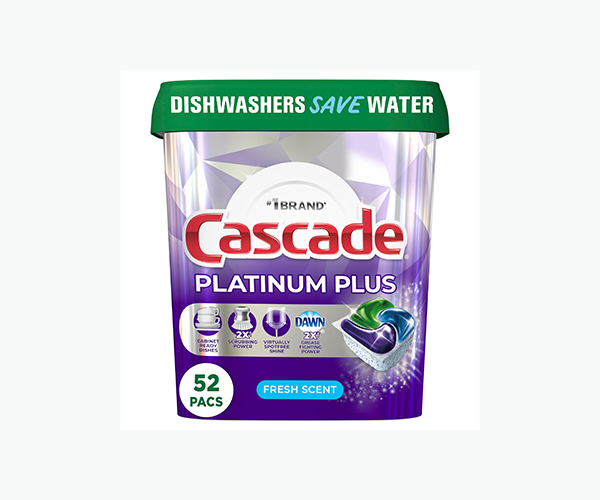Introduction
Personal Anecdote: I had the worst scenario a homeowner may encounter only last week when my reliable Criterion dishwasher, which has been my kitchen’s silent protector, abruptly refused to start. There I stood, looking at a stack of soiled dishes and a seemingly uninterested machine. That moment reminded me of the old dishwasher in my first apartment, a cumbersome device that served more as décor than as a functional appliance.
Dishwashers are becoming a necessary kitchen item in today’s fast-paced world, surpassing their previous status as a luxury. They free us from the tedious chore of hand-washing dishes, save time and water, and, let’s face it, they make life easier. A dishwasher that works is the unsung hero of a well-functioning kitchen since it silently completes one of our most tiresome tasks.
Synopsis of the Article: We’ll delve into the world of Criterion dishwashers, a reputable brand recognized for its dependability and effectiveness, in this extensive guide. We can help you with everything from comprehending the fundamental functions of your dishwasher to diagnosing typical difficulties including leaks, sounds, and drainage problems. We’ll also go over advanced troubleshooting methods, do-it-yourself maintenance advice, and ways to improve the functionality of your dishwasher. Whether you’re a seasoned user dealing with an unforeseen problem or a first-time owner, this page is your one-stop shop for anything dishwashing related. Now grab a rag and let’s explore the secrets of the most trustworthy friend in your kitchen.
Understanding Your Criterion Dishwasher
Knowing the functions and maintenance needs of your Criterion dishwasher is essential when it comes to keeping the major cleaning tool in your kitchen. The popular 24-inch portable dishwasher type from Criterion is one of the dishwashers made with efficiency and portability in mind. For individuals who need the versatility of a portable device or for smaller kitchen spaces, this little powerhouse is revolutionary. The 24-inch portable dishwasher has all the power of its larger counterparts, so don’t be fooled by its diminutive size.
Fundamental Features: The Criterion dishwasher line, particularly the portable 24-inch model, boasts cutting-edge features that distinguish it in the market for appliance dishwashers. Usually, it has several wash cycles, ranging from delicate for your fine china to heavy-duty for pots and pans. Additionally, a lot of models have energy-saving modes, which makes them a green option. Convenience is ensured by the user-friendly controls and LED displays, while durability and effective drying are facilitated by the stainless steel interior.
Basic Maintenance: Keeping your Criterion dishwasher in good working order requires routine maintenance. This can greatly increase the lifespan of your appliance and just requires little maintenance and routine inspections. First, make sure there are no food particles or dirt in the spray arms. In addition to taxing the motor, a clogged spray arm might result in soiled dishes. Second, it’s imperative to clean the filter on a regular basis. Not only does a clean filter increase efficiency, but it also keeps smells at bay. Finally, to get rid of any grease and limescale buildup, do a cleaning cycle with a dishwasher cleaner on a regular basis.
It’s crucial to keep in mind that even with a 24-inch portable dishwasher, it needs the same level of maintenance as a full-sized unit. This involves filling the racks and spray arms properly to guarantee effective cleaning and prevent damage. It’s also essential to routinely inspect the connections and hoses for any indications of wear or leaks because this equipment is portable.
In conclusion, knowing how to take care of your Criterion dishwasher—whether it’s a full-sized or a 24-inch portable—is essential to guaranteeing its longevity and best performance. These simple upkeep suggestions will allow you to benefit from a hygienic and effective dishwasher for many years to come.
Common Dishwasher Problems and Solutions
It’s important to know the frequent issues that can arise with appliances like your dishwasher if you want to keep your kitchen operating efficiently. This section will cover common problems seen by owners of different kinds, such as the larger, more conventional appliance dishwashers and the increasingly popular 24-inch portable dishwashers. These solutions are made to assist you in promptly identifying and fixing problems so that your dishwasher remains a dependable addition to your kitchen.
Problem 1: Dishwasher Not Starting
One of the most frustrating issues is when your dishwasher, whether it’s a compact 24-inch portable dishwasher or a full-sized appliance dishwasher, refuses to start. Here are some steps to troubleshoot this problem:
- Check Power Supply: Ensure the dishwasher is properly plugged in and the outlet is functioning. For a portable dishwasher, ensure that the connection to the kitchen faucet is secure and the water supply is turned on.
- Inspect Door Latch: A common issue with both portable and built-in dishwashers is a faulty door latch. The dishwasher won’t start if it senses the door isn’t securely closed.
- Examine the Control Panel: Sometimes, the problem could be with the control panel. Resetting your dishwasher can often resolve this. For most models, including the 24-inch portable dishwasher, this can be done by unplugging the unit for a minute and then plugging it back in.
- Check for Error Codes: Many modern dishwashers, particularly the advanced appliance dishwasher models, display error codes that can help identify the problem.
Problem 2: Dishes Not Cleaning Properly
It’s disappointing to open your dishwasher and find dishes that are still dirty. Here’s what you can do:
- Load Correctly: Overloading or improper loading can prevent dishes from getting clean. Ensure that water spray can reach all dishes. This is especially important in a 24-inch portable dishwasher due to its compact size.
- Clean the Filter and Spray Arms: Regular cleaning of the dishwasher filter and spray arms is crucial for both portable and built-in models. Clogged filters or arms can impede water flow and cleaning efficiency.
- Use Quality Detergent: The choice of detergent can significantly impact cleaning performance. Experiment with different brands to find the most effective one for your appliance dishwasher.
Problem 3: Dishwasher Leaking Water
A leaking dishwasher can be a cause for concern, regardless of its size or type. Here’s how to address it:
- Inspect Door Gasket: The rubber seal around the door, known as the gasket, can wear out over time, especially in frequently used appliance dishwashers. Examine it for any signs of damage and replace if necessary.
- Check Water Inlet Valve: For leaks during the fill cycle, the water inlet valve might be to blame. This is a common issue in both portable and traditional dishwashers.
- Level the Dishwasher: An unlevel dishwasher, particularly a 24-inch portable dishwasher that might be moved frequently, can cause water to leak out. Ensure your dishwasher is level to prevent this issue.
Problem 4: Unusual Noises During Operation
Dishwashers can sometimes make strange noises, which can be concerning. Here’s what those noises might mean:
- Grinding Noises: This could indicate a piece of glass or other debris caught in the dishwasher pump. This issue is common in both portable and built-in dishwashers.
- Humming or Buzzing: These sounds can be normal, but if they’re unusually loud, it might indicate a failing motor, especially in older appliance dishwashers.
- Squealing Noise: In areas with hard water, mineral buildup can cause squealing noises. This is often noticed in both 24-inch portable dishwashers and larger models.
Problem 5: Dishwasher Not Draining
If your dishwasher isn’t draining properly, it can leave a pool of water at the bottom. Here’s how to fix it:
- Check the Drain Hose: Ensure that the hose is not kinked or clogged. This is a common issue in both portable and traditional dishwashers.
- Clean the Drain Basket: Located at the bottom of the dishwasher, the drain basket can become clogged with food debris and should be cleaned regularly.
- Inspect the Garbage Disposal: If your dishwasher drains through the garbage disposal, make sure the disposal is clear. A clogged disposal can prevent the dishwasher from draining.
Advanced Troubleshooting Techniques
Sometimes there are more involved repairs and maintenance for your Criterion dishwasher than just the simple fixes. Expert troubleshooting methods can save your bacon, particularly when tackling trickier problems that would be too difficult for the typical user to solve. These guidelines are intended to assist you in identifying and fixing some of the more challenging issues that may emerge with your appliance dishwasher, regardless of whether you possess a normal model or a 24-inch portable dishwasher.
Handling Electronic Problems: Like the Criterion models, modern dishwashers are outfitted with complex electronic systems that regulate everything from cycle length to water temperature. These systems’ malfunctions can result in a variety of problems. Resetting an electronic device is the first step in fixing it. Frequently, this can be accomplished simply disconnecting the dishwasher for a minute and then replugging it. Before trying a reset on a 24-inch portable dishwasher—which may be more delicate because of its small size—make sure it is unplugged from any power source. Look for any error codes on the control panel if the problem continues. These codes can be an important troubleshooting tool as they represent your dishwasher’s means of expressing the issue.
Water Temperature Issues: Whether you own a full-sized dishwasher or a 24-inch portable dishwasher, the efficiency of your machine greatly depends on the water’s temperature. The water may not be boiling up correctly if your dishes are coming out dirty. During a cycle, check the water’s temperature with a thermometer. At least 120°F is required for the best cleaning results. If not, there may be a problem with the thermostat or the heating element. These parts can be more complicated to replace, so if you’re not sure you can do it yourself, it could be time to hire an expert.
Difficulties with Hard Water: Dishwashers with hard water can be a pain, particularly the smaller units, such as the 24-inch portable dishwasher. Mineral accumulation can clog filters and spray arms, decreasing cleaning effectiveness. Keep the spray arms and filter clean on a regular basis to combat this. Another option is to use a dishwasher cleaning made specifically to get rid of mineral buildup. If you reside in a region with very hard water, you should think about installing a water softener to safeguard all of your water-using appliances, including your dishwasher.
Handling unusual Noises: Is the dishwasher in your appliance creating unusual noises? These noises can be generated by anything from loose utensils to a malfunctioning motor, and they can range in volume from little rattles to frightening thuds. Because of the limited area of a 24-inch portable dishwasher, items inside are more prone to move throughout a cycle, so make sure your dishes are always loaded firmly. Check the dishwasher’s interior for any loose parts or debris if the noise continues. A noisy dishwasher may occasionally be a sign of a more serious problem that needs to be fixed by a professional, such as a failed pump or motor.
Resolving Drainage Issues: There are several ways to fix a dishwasher that won’t drain. First, look for kinks or obstructions in the drain hose, which is a common issue in smaller areas where a 24-inch portable dishwasher may be utilized. In order to stop backflow, make sure the hose has a high loop. Should the hose be clear, the drain pump or dishwashing filter could be the issue. Drainage problems are frequently resolved by cleaning or replacing these components.
When to Get Professional Help: While a little knowledge and elbow grease can cure many dishwashing difficulties, there are some problems that are better left to the pros. It’s time to call in a specialist if, after trying all the above methods, your dishwasher—whether it’s a full-sized or 24-inch portable model—still isn’t operating properly. This is particularly important if there are complicated technological problems or if the dishwasher is still covered by warranty, as doing repairs yourself could void it.
To sum up, using sophisticated troubleshooting methods can help you keep your Criterion dishwasher operating at its best. Knowing how to identify and resolve complicated problems with your dishwasher may save you both time and money, regardless of whether it’s a large, countertop machine or a small, portable 24-inch type. Remember, to make sure your dishwasher keeps serving you well for years to come, never be afraid to seek professional assistance when in doubt.
DIY Maintenance Tips
Whether you have a 24-inch portable dishwasher or a normal appliance dishwasher, maintaining your dishwasher is essential to its longevity and best performance. In addition to keeping your dishwasher operating efficiently, routine maintenance also lowers the likelihood of future, expensive issues. Regardless of the size or model of your dishwasher, you can easily follow these important do-it-yourself maintenance instructions.
1. Clean the Filter Regularly
The filter is a vital component of your dishwasher, trapping food particles and preventing them from redepositing on your dishes. For most appliance dishwashers, the filter is located at the bottom of the machine. Remove it and rinse under running water. For stubborn debris, use a soft brush. This simple step, done regularly, can significantly improve the efficiency of your dishwasher.
2. Inspect and Clean the Spray Arms
The spray arms are responsible for distributing water throughout the dishwasher. Over time, the holes in the spray arms can become clogged with food particles or mineral deposits, especially in areas with hard water. To clean, remove the arms and use a toothpick or a small brush to clear the holes. This ensures even water distribution, crucial for both full-sized and 24-inch portable dishwashers.
3. Deodorize and Clean the Interior
Dishwashers can develop odors due to trapped food particles and grease. To deodorize, place a cup of white vinegar in a dishwasher-safe container on the upper rack and run a hot-water cycle. For a deeper clean, sprinkle baking soda around the bottom of the dishwasher and run a short cycle with hot water.
4. Check and Clean the Door Gasket
The door gasket, made of rubber, ensures a tight seal when the dishwasher door is closed. Over time, food particles and grime can accumulate on the gasket, leading to leaks. Regularly wipe it down with a damp cloth to maintain a good seal and prevent leaks, which is particularly important for a 24-inch portable dishwasher that might be moved frequently.
5. Regularly Check and Clean the Drain
A clogged drain can lead to poor drainage and can cause water to back up into the dishwasher. Regularly inspect the drain area and remove any debris. This is a crucial step for both standard and portable dishwashers to ensure efficient operation.
6. Use the Right Detergent and Rinse Aid
The choice of detergent can impact the cleaning efficiency of your dishwasher. Use a high-quality detergent and rinse aid suitable for your model. For a 24-inch portable dishwasher, which may have different water usage patterns compared to larger models, choosing the right detergent is even more critical.
7. Periodically Check for Hoses and Connections
Regularly inspect the water inlet and drainage hoses for any signs of wear or leaks. Tighten connections if necessary, and replace hoses if they show signs of deterioration. This is especially important for an appliance dishwasher that may have been installed for a long time.
8. Run Empty Cycles for Maintenance
Every few months, run an empty cycle with a dishwasher cleaner to remove any build-up of grease and limescale. This is an effective way to maintain both large appliance dishwashers and smaller 24-inch portable models.
Conclusion
Regular maintenance of your dishwasher, whether it’s a full-sized appliance or a compact 24-inch portable dishwasher, is key to its longevity and efficiency. By following these simple DIY tips, you can ensure that your dishwasher remains a reliable and effective tool in your kitchen, saving you time and effort in your daily routine.
Enhancing Dishwasher Performance
The dishwasher is one of the most important appliances for convenience and efficiency in the kitchen. The 24-inch portable dishwasher models, in particular, have completely changed the way we handle kitchen duties since they provide flexibility and functionality in a small package. However, to get the most out of even the most sophisticated equipment dishwasher, some cunning is necessary. Whether your dishwasher is a sleek built-in unit or a multipurpose 24-inch portable dishwasher, here are some recommendations to make sure it runs as efficiently as possible.
Optimizing Detergent Use: The choice of detergent can significantly impact the effectiveness of your appliance dishwasher. For Criterion dishwashers, it’s essential to select a detergent that complements its cleaning capabilities. Look for detergents specifically designed for high-efficiency models. They are formulated to work with less water, which is a common feature in modern dishwashers, including the compact 24-inch portable dishwasher models.
Loading Tips for Optimal Cleaning: Mastering the art of loading can transform the performance of your dishwasher. Start by placing the larger and dirtier items on the bottom rack, ensuring they are spaced out enough to allow water and detergent to circulate. Delicate items and glasses should find their home on the top rack. For those using a 24-inch portable dishwasher, be mindful of its size and avoid overloading. An overcrowded dishwasher will impede the appliance’s ability to clean effectively.
Utilizing Rinse Aids: Rinse aids are not just an additional luxury; they are a necessity for spotless results, especially in hard water areas. They help in the drying process, reducing water spots and streaks on dishes. This is particularly beneficial for appliance dishwashers that may not have as robust a drying function as their larger counterparts.
Regular Maintenance: Regular cleaning of the dishwasher’s filters and spray arms is crucial. Remove any food particles or debris to prevent clogs and maintain efficient water flow. This is especially important for a 24-inch portable dishwasher, where space is at a premium, and any blockages can significantly impact performance.
Water Temperature: Ensure your dishwasher is receiving hot enough water. The ideal temperature for most dishwashers, including the 24-inch portable dishwasher, is around 120°F. This helps in effectively breaking down food residues and grease.
Energy Efficiency: One of the advantages of modern dishwashers, particularly the 24-inch portable dishwasher, is their energy efficiency. To capitalize on this, run your dishwasher at full load and choose eco-friendly cycles that use less water and energy.
Addressing Hard Water: Hard water can be the bane of any dishwasher’s existence. It can lead to mineral buildup and affect the appliance’s cleaning ability. Consider installing a water softener or use dishwasher salts to mitigate the effects of hard water.
In conclusion, whether you own a standard appliance dishwasher or a compact 24-inch portable dishwasher, these tips can significantly enhance its performance. By understanding and implementing these strategies, you can ensure that your dishwasher not only cleans effectively but also runs efficiently for years to come.
Conclusion
As we come to the close of our extensive exploration into the complexities of dishwasher troubleshooting, with a special emphasis on Criterion dishwashers, it is imperative that we take a moment to consider the most important realizations and insightful information we have acquired. This article aims to provide you, the reader, a deeper understanding of your dishwasher’s operation so that you’re prepared to address frequent problems that may come up, rather than just offering quick remedies.
Summary of Key Points: We began by going over the fundamental characteristics of Criterion dishwashers, stressing the significance of routine maintenance for extended life. Next, we discussed frequent difficulties like leaks, strange noises, drainage problems, dishwasher not starting, and dishes not washing correctly. We looked into possible reasons and step-by-step fixes for each issue, so you will have a clear route to fixing these problems.
Along the way, we also experimented with sophisticated troubleshooting methods, including hard water problems, technological malfunctions, and water temperature issues. These parts are intended to provide you with an advantage in maintaining and maximizing the functionality of your dishwasher.
Do-it-yourself Maintenance Advice: We talked about the value of routine cleaning and upkeep and included a how-to for changing common components. This section was essential in assisting you in determining whether to hire a professional and how to do maintenance on your own.
Improving Dishwasher Performance: We looked at water-saving strategies, loading advice, and detergent selection. These tips are meant to improve your dishwasher’s general performance and efficiency rather than only solve specific issues.

